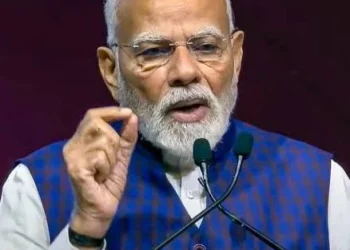Rahul Gandhi has been in South America for over two weeks and has not addressed the ongoing Bihar voter fraud controversy, sparking criticism. While petitioners like Yogendra Yadav and Prashant Bhushan pursue the issue in the Supreme Court, the Congress leader’s silence has drawn ire from both the BJP and his own supporters.
By Navin Upadhyay
October 12, 2025: It has been over two weeks since Congress leader Rahul Gandhi departed for South America—a destination with little relevance for the ongoing political contest in Bihar, where the India bloc faces a high-stakes battle against the BJP-led NDA. Even from a national political perspective, there was no pressing reason for such a prolonged trip. Had the journey been intended as a strategic exercise, it could have been considerably shortened to allow Gandhi to remain actively engaged in opposition duties.
Political analysts note that Gandhi’s absence reflects a shift from his primary responsibility as the Leader of the Opposition—the voice for millions facing injustice, victimization, and socio-political neglect—toward the demeanor of a globe-trotting diplomat on an extended mission. While diplomats are expected to focus on foreign affairs, Gandhi’s mandate demands attention to urgent domestic issues, particularly in Bihar.
The timing of his trip is especially consequential given the ongoing “voter chori” (voter fraud) controversy. The Election Commission of India (ECI) recently released final electoral rolls for Bihar, which a report by the Reporters’ Collective flagged as containing nearly 1.32 crore dubious entries and 15 lakh duplicate voters, alongside multiple anomalies, including households with unusually high numbers of registered voters. Despite activists like Yogendra Yadav and petitioners such as Prashant Bhushan pursuing the matter in the Supreme Court, Gandhi has remained silent posting no tweets on X highlighting the issue in the past two weeks.
READ: 
READ: Tejashwi Seeks to Expand M-Y Coalition to Challenge NDA
During his absence, several tragic events in India have demanded leadership attention. A Dalit youth was lynched in Rae Bareli, Gandhi’s own constituency, while a Dalit IPS officer in Haryana reportedly committed suicide citing harassment and discrimination. Additionally, incidents of children dying from toxic cough syrup have drawn nationwide attention. Critics argue that Gandhi’s extended trip abroad contrasts sharply with these domestic crises, raising questions about his commitment to the people he represents.
The Congress leader’s international sojourn has drawn criticism from multiple quarters. The BJP, for example, highlighted his absence in a tweet by national social media in-charge Amit Malviya:
“Rahul Gandhi, the Leader of the Opposition, left for South America on September 26. It’s been over 15 days now, and apart from a few staged videos meant to divert attention from the real purpose of his visit, there’s complete silence. Where exactly is Rahul Gandhi, and what is he doing in South America? Why all this secrecy?”
Gandhi’s absence has also invited disapproval within his own party. Historical precedent adds weight to these concerns: during the Haryana Assembly polls, Gandhi left the state mid-campaign for an extended trip abroad. Despite vigorous efforts by leaders like Bhupinder Singh Hooda and Kumari Shaila, Congress lost a contest initially considered favorable, with analysts citing the absence of top leadership as a significant factor.
READ: Hamas to Boycotts Gaza Peace Deal Signing in Egypt
Critics argue that Gandhi appears willing to work hard politically—but only insofar as it does not impinge on his personal comforts. By contrast, opponents like Prime Minister Narendra Modi and Home Minister Amit Shah operate as full-time, round-the-clock politicians, leveraging every moment for political consolidation. In a fiercely competitive electoral environment, Gandhi’s extended absence risks leaving Congress and the broader opposition without decisive leadership at a critical juncture.
As Bihar approaches the 2025 Assembly elections, observers emphasize that leadership visibility, local engagement, and timely intervention in issues like voter roll anomalies are essential. Gandhi’s continued absence abroad raises pressing questions about whether the Congress can effectively counter the NDA’s 24×7 political machinery—and whether opposition voters will perceive a leadership vacuum at a pivotal moment.














